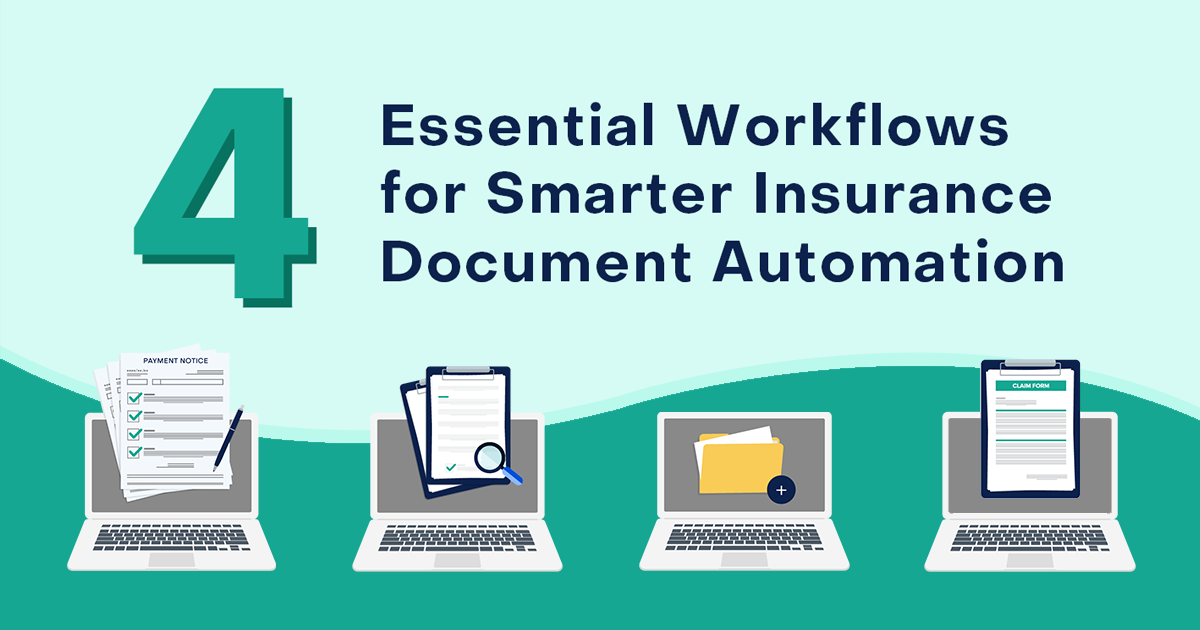Have you heard the term “tribal knowledge” before?
It sounds mysterious, but tribal knowledge really just refers to the unwritten knowledge within a company. You know what we’re talking about: the password you use to get into your email account, but have never written down; the process you use to update records in your CRM of choice; but have never documented; the list of industry contacts you keep in your head; etc.
These are essential bits of information. But they don’t benefit your organization as much as they should because the details aren’t widely known. They’re hidden in your employees’ minds.
In this article, we’ll explain what tribal knowledge is in sales. Then we’ll discuss how tribal knowledge impacts quoting accuracy, the consequences of relying on the kind of manual quoting processes that tribal knowledge produces, and six ways that the right CPQ software will help capture tribal knowledge and reduce revenue leakage. Let’s dive in!
What is Tribal Knowledge in Sales?
Tribal knowledge, sometimes referred to as “tacit knowledge” or “implicit knowledge” by industry professionals, is the undocumented knowledge within your sales department.
Put simply, it’s all the knowledge that exists in your sales reps’ heads, but nowhere else.
Tribal knowledge can be useful for the few that possess it—usually more experienced employees who earn the knowledge via trial and error. But this isn’t always the case. According to Leonard Bertain, the author of The Tribal Knowledge Paradox, this kind of knowledge can lead to wasted time and resources. This is definitely the case in sales departments.
Our suggestion: do your best to identify tribal knowledge within your organization. Then document the information so that it can be assessed, and if desired, shared amongst your staff.
How Does Tribal Knowledge Impact Quoting Accuracy?
Tribal knowledge falls short when it comes to the quoting process. There’s just no way to guarantee accuracy when working with this kind of information. Here’s why:
New Sales Reps Don’t Have Necessary Data
Put yourself in your new sales rep’s shoes…
They’ve only been with your company for a few months and are still learning the ropes. The lead they’ve been working for the past few days is ready to make a purchase. There’s just one problem: said lead wants Component ABC instead of Component XYZ. It’s non-negotiable.
“No problem!” your sales rep says. They just want to make the sale and don’t realize that Component XYZ is twice as expensive as Component ABC. After all, this information isn’t written down anywhere. The deal goes through, but your company loses money. No bueno.
Capturing tribal knowledge will help prevent these quoting inaccuracies because your reps will have the information they need to make better decisions during the sales process.
Old Sales Reps Forget Important Information
Tribal knowledge can impact experienced sales reps, too.
These people have a lot of information in their heads. But can they access said information when needed? The answer might be no, which will lead to an inaccurate quoting process.
For example, an experienced sales rep might automatically quote $500 for Product X because that’s always been the price. But the cost of materials has gone up and your company now sells Product X for $565. The deal goes through, but your company loses money. Again.
If only your reps had an updated pricing sheet to use during sales-related conversations.
No Sales Rep Benefits From Collective Wisdom
Finally, tribal knowledge limits collective wisdom within your sales organization.
One of your reps might stumble upon a faster way to generate sales quotes. Or reduce manual errors in the quoting process. Or design quotes in an appealing way that leads to more sales.
This information should be shared with all team members! That way everyone can benefit from the information, close more deals, and improve company revenue. But the only effective way to share important details between coworkers is to write it down.
The Consequences of Relying on Manual Quoting Processes
Your sales department should document as much tribal knowledge as it can. Why? Because an over-reliance on tribal knowledge leads to manual quoting processes. And manual quoting processes often lead to poor accuracy, productivity, customer satisfaction, and profitability:
Accuracy
As we alluded to in the previous section, manual quoting processes are more error prone.
It’s easy to copy and paste the wrong price into a quote. Or mistype a product number. Or even include inaccurate customer details. These things create bottlenecks in the sales process.
Think about it: sales reps have to reconfigure and send quotes. Customers have to review them for a second time. All the while frustration builds on both sides of the transaction because sales reps’ productivity metrics go down and customers don’t enjoy the buying process.
Productivity
Speaking of productivity metrics…
Manual quoting processes take longer to complete because sales reps have to physically input and/or transfer information between documents. Imagine how much faster they would be if they used automation technology to do these tasks for them (Hint: WAY faster.)
Plus, manual quoting processes lead to mistakes. When mistakes happen, sales reps have to correct them, which takes valuable time away from other revenue-generating activities.
Customer Satisfaction
Your sales reps aren’t the only ones who suffer from manual quoting processes.
Customers have to wait longer to receive quotes. Worse, the quotes they receive might not be accurate, which means they’ll have to wait a second time for the error(s) to be corrected.
Customers do not like waiting. They want what they want, and they want it right now. Extending the sales process will hurt your customer satisfaction scores, which could lead to fewer profits.
Profitability
Last but not least, manual quoting processes harm profitability. This is true for two reasons: manual processes elevate labor costs and reduce customer satisfaction. Let’s discuss:
- Elevated Labor Costs: Manual quoting processes take longer to complete. This means your company pays its employees more to create quotes and make sales.
- Reduced Customer Satisfaction: Manual quoting processes increase errors, which force customers to wait longer for their products/services, and lowers their satisfaction.
Good news: you can avoid the consequences above if you collect tribal knowledge and use the information you glean to help power your CPQ software of choice!
6 Ways the Right CPQ Software Can Reduce Revenue Leakage
If we’ve learned anything thus far, it’s that your company needs an effective institutional knowledge management strategy. This will help you document the data in your employees’ heads and use it to achieve organizational goals. But sales teams need to go a step further.
Here’s what we recommend: invest in sales quoting software to incorporate company knowledge into your sales strategy and better facilitate the quote to cash process.
Let’s look at six different ways that the right CPQ software will benefit your sales department:

1. Guided Selling
The right CPQ software will guide your reps through the quoting process.
Simply tell your CPQ what your reps can and can’t do. For example, reps can combine Component ABC with Component XYZ to create a custom product. But they can’t combine Component ABC with Component 123, as this would create unreliable items and boost returns.
Once you’ve configured rules for your CPQ, your reps will consistently build products that work and generate a profit. And they won’t have to rely on unwritten knowledge to achieve these things. They’ll just abide by the rules inside your CPQ system and avoid costly mistakes.
2. Pricing Calculators
A quality CPQ solution will help your reps price products correctly.
Inaccurate pricing can hurt profitability, customer satisfaction, or both. The best CPQs have pricing calculators that will eliminate these negative scenarios from your sales process.
Think about the main causes of revenue leakage: your sales rep quotes the wrong price, your customer receives an out-of-date discount, your company sells custom products that require complex pricing rules—pricing rules that neither sales reps nor customers fully understand..
A CPQ tool solves these issues. How so? The internal pricing calculator will generate accurate prices based on your company’s unique pricing structure; then input said prices into customer quotes, while eliminating out-of-date discounts. All your reps have to do is click “Send“.
3. 3D Configurations
Has your sales team ever lost a sale because a customer couldn’t see the product they wanted to purchase? It happens all of the time—unless your CPQ has a 3D configurator.
Configure custom products for your customers; then show them the results in three dimensions. Take things a step further and allow customers to change colors, widths, and lengths in real time. You can even let them switch out specific parts to bring any idea to life in stunning detail.
Your revenue numbers will go up when your customers can see before they buy. To make it happen, you just need to invest in a quality CPQ with a built-in 3D configurator.
4. Templates
A professional-looking proposal can help “seal the deal” and drive revenue.
The best CPQ solutions include well-designed templates that can be customized to your sales department’s exact preferences. Want every proposal to include your company’s logo? Maybe you need each proposal to feature configuration details to satisfy your customers. Your CPQ will help you accomplish these things, while increasing rep productivity levels.
When it comes to streamlining sales processes and reducing revenue leakage, few things are more powerful than a reliable CPQ that features customizable templates.
5. Integrations
Your CPQ will also integrate with your ERP and/or CRM of choice. This is so important because it will allow your team to capitalize on additional sales automation opportunities.
When your CPQ and your ERP or CRM talk to each other, your reps will be able to add customer details to sales quotes on autopilot. This will eliminate errors that cause delays in the sales process. As we’ve already discussed, the faster your reps quote customers, the happier said customer will be. Since happy customers buy more often than unhappy ones, this is critical.
6. Customer Loyalty
Last but not least, CPQ software increases customer loyalty.
It’s not hard to see why. When sales reps produce accurate quotes in less time, customer satisfaction goes up. When said reps can also produce 3D renderings of each custom product their customers want to buy, the entire buying process becomes more enjoyable.
Basically, a CPQ solution will give you access to productivity tools and ensure customer loyalty. Get things done faster, while still giving customers the experience they deserve.
Eliminate Quoting Inefficiencies With Experlogix CPQ
Tribal knowledge exists in every organization.
Documenting tribal knowledge should be a top priority for your organization because it will allow your sales department to eliminate manual sales processes, capitalize on CPQ software, and reduce revenue leakage. The only question left to answer is which CPQ is right for your team?
We recommend Experlogix CPQ because it’s easy to use and ultra powerful. Seriously, our platform includes a powerful rules engine and pricing calculator, which will guide your reps through the sales process in less time. It also features a 3D product configurator and custom proposal templates, and integrates with ERP platforms like Microsoft Dynamics and Salesforce.
Sign up for a free demo of Experlogix today to see our industry-leading CPQ in action!








